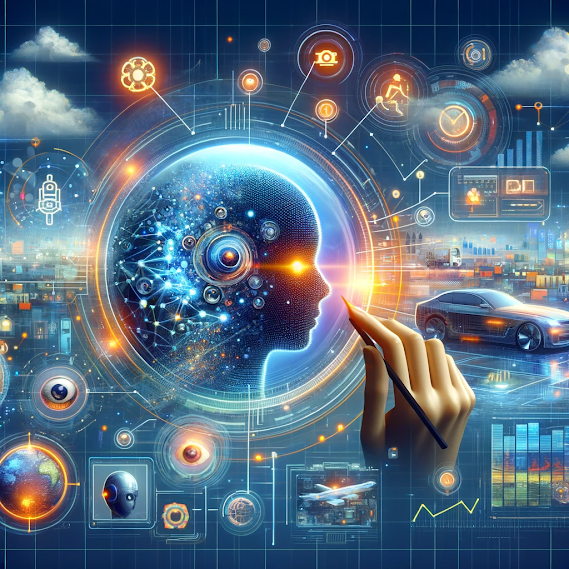🚀 AI in 2024: What to Expect from Stanford HAI Experts
🚀 AI in 2024: What to Expect from Stanford HAI Experts
As the calendar turns to 2024, the realm of artificial intelligence (AI) stands on the brink of unprecedented advancements. Experts from Stanford University's Human-Centered Artificial Intelligence Institute (Stanford HAI) have cast their gaze into the future, predicting a year that promises not only technological breakthroughs but also significant shifts in the way we work, interact, and govern. The forthcoming developments in AI herald a transformative period, poised to redefine the landscape of numerous industries and societal norms.
The Evolution of White Collar Work
One of the most impactful predictions for the coming year is the transformation of white-collar professions. AI technologies are set to augment the capabilities of knowledge workers across the creative, legal, and financial sectors. This integration of AI is expected to unlock productivity benefits that have been long anticipated, streamlining complex tasks and fostering innovation. The result is a future where AI acts not as a replacement for human intellect but as a powerful tool that amplifies creativity and efficiency.
The Challenge of Deepfake and Multimodal AI
As AI continues to advance, 2024 is expected to witness significant progress in multimodal AI technologies, particularly in the realm of video generation. This raises both opportunities and challenges, notably in the proliferation of deepfake content. The ability of AI to create increasingly sophisticated and indistinguishable fake videos calls for heightened vigilance and the development of countermeasures to preserve the integrity of digital media. The advancements in AI models that challenge our perception of reality underscore the urgent need for ethical considerations and regulatory frameworks.
The Impact of a Global GPU Shortage
The anticipated global shortage of Graphics Processing Units (GPUs) due to the escalation of AI capabilities being brought in-house by companies signifies a pivotal moment for hardware innovation. This shortage is expected to catalyze a surge in demand for innovative, low-power alternatives to the current GPUs, sparking a wave of advancements in AI hardware that could reshape the technological infrastructure underpinning AI development.
The Emergence of Actionable AI Agents
The upcoming year is poised to witness the rise of more helpful AI agents, capable of performing tasks and connecting to services in ways that transcend mere conversational interfaces. This evolution marks a shift towards AI agents that offer actionable assistance, expanding their utility into multimedia and enhancing AI's understanding of videos. This progression signifies a leap towards more intuitive, versatile, and user-friendly AI applications that seamlessly integrate into daily life.
AI Policy and Governance on the Horizon
A significant aspect of AI's evolution in 2024 revolves around policy and governance. With Congress expected to act on the CREATE AI Act and the implementation of a new Executive Order on AI development, the landscape of AI policy is set to undergo substantial changes. These legislative actions are anticipated to mold the development of AI technologies in alignment with societal values, ensuring that the rapid advancements in AI are matched with responsible governance and ethical considerations.
Furthermore, AI regulation will become a focal point, especially in the U.S., where states like California and Colorado are gearing up to adopt regulations addressing AI's role in consumer privacy. These regulatory movements will compel companies to reassess their operations and customer interactions, navigating the complex interplay between innovation and compliance.
The Future of AI: Adaptation and Ethical Consideration
As we step into 2024, the predictions from Stanford HAI experts underscore a landscape of AI that is rich with potential yet fraught with challenges. The integration of AI in business demands not only technological adaptation but also a deep commitment to ethical consideration and responsible innovation. The way we address these challenges and harness the opportunities presented by AI will significantly impact industries and professions, shaping the future of work, governance, and societal norms.
In conclusion, the year ahead in AI is one of both promise and peril. The potential for AI to drive significant advancements across multiple domains is immense, yet it is accompanied by a need for vigilance against the risks posed by such rapid evolution. As we navigate this complex terrain, the focus must remain on fostering an AI future that is not only technologically advanced but also ethically grounded and socially responsible. How we adapt to and shape these developments will be pivotal in realizing the full potential of AI while safeguarding the fabric of our society and the integrity of our industries.

.jpeg)
.jpeg)


Comments
Post a Comment